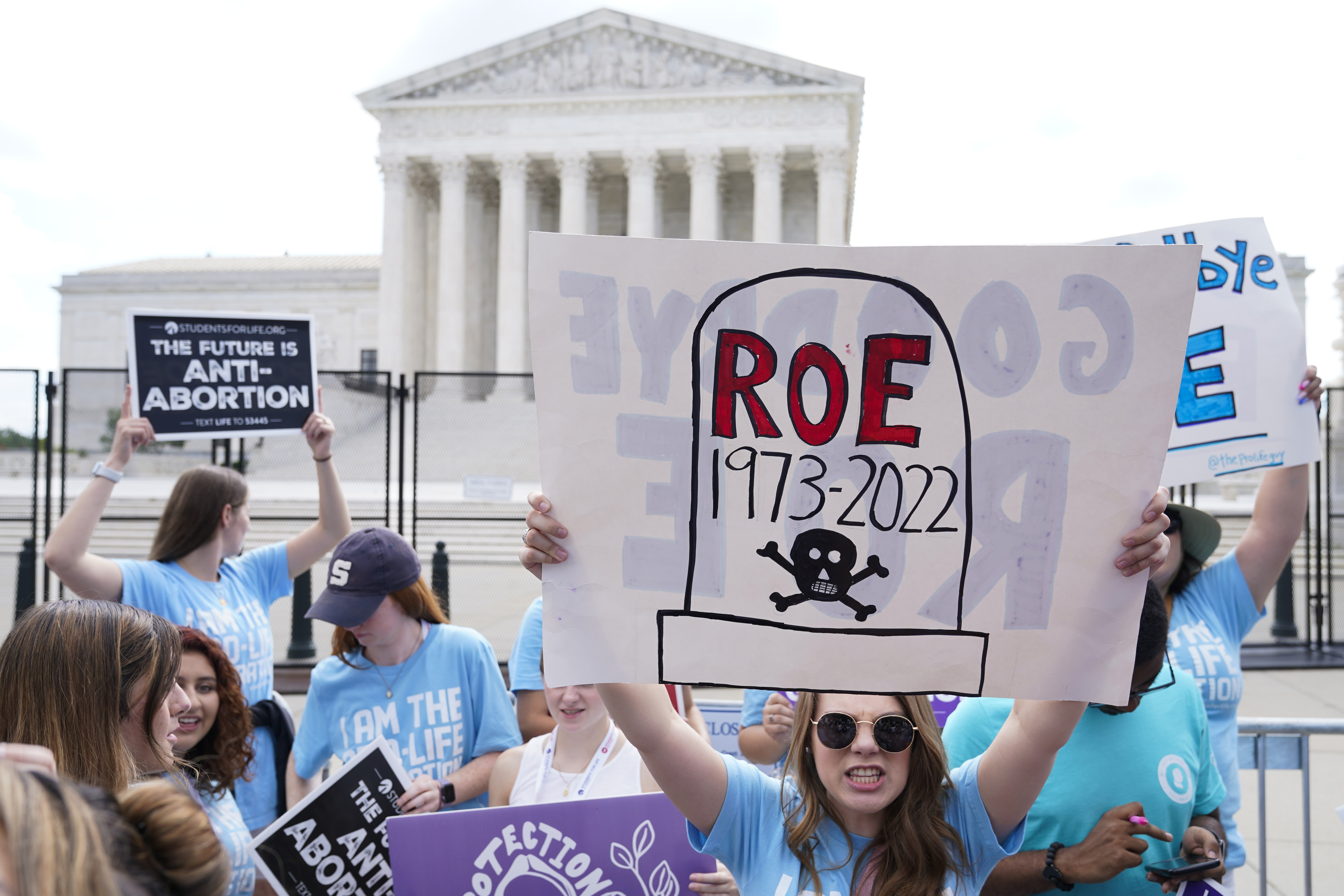Military Abortion Policy - Share on Facebook Share on Twitter Share on LinkedIn Share on Reddit Share on Flipboard Share via Email Comment
Female service members say the U.S. military's restrictive abortion policy has damaged their physical and emotional health and jeopardized their careers and financial stability.
Military Abortion Policy

In a study published Wednesday, Kate Grindlay, a researcher at Ibis Reproductive Health, interviewed 21 women ages 19 to 34 who had abortions while serving in the military from 2015 to 2016. Many said Grindlay felt abandoned by the military and did so. not I don't know where to turn.
The Us Air Force Gave Her A Choice: Your Baby Or Your Job
"Many women expect the military to at least offer counseling and are shocked and outraged when they are killed," Grindlay said.
. "Some reported feeling overwhelmed or left out because they had no choice ... and others said that most military medical providers operate under the assumption that all pregnant women want to have babies.
"The military makes it easy to have kids, but it's not easy to not have kids," a female Air Force officer told Grindlay and his research team, according to NPR. "After I told them I wasn't going to stay, he was like, 'OK, you're on your own.' They could not have offered more help, even something as simple as a referral.
Another woman said she sought an abortion because she couldn't "jump out of a plane" if she was pregnant. "That's my job," he explained.
Nigerian Government Rejects Report On Military Abortion Programme
Half of the women Grindlay interviewed didn't know about the military's abortion policy until they needed it: Federal law only allows military medical facilities to provide abortions if there is rape, incest or a risk to the woman's life. Otherwise, female service members are on their own and must travel to outside clinics and pay out of pocket for the procedure—the military also does not provide abortion insurance.
Women in the military have a higher rate of unintended pregnancy than civilian women, which suggests to Grindlay that the military needs to improve its policies. She and her colleagues made several policy recommendations to the Department of Defense, including a suggestion that information about the military's abortion policy be made more available to female service members.
Grindlay stressed that the improvements are especially necessary because it has been nearly two years since former Defense Secretary Ash Carter announced that the Pentagon would open all combat positions to women.

"The opportunities for women in the military are greater than ever before," she said. "This means that access to comprehensive health care services tailored to your needs is more important than ever."
Dept. Of Defense Discusses Policies On Abortion, Covid Vaccines
NARAL Pro-Choice previously asked the Department of Defense to review the policy, citing restrictions on abortion coverage for female service members.
"The right to vote should not depend on the source of health insurance, and this is especially true for servicewomen," the organization wrote in a January statement. "When a woman signs up to serve her country, she doesn't have to sign away her reproductive rights." We are happy to make this story available for free republishing under a Creative Commons Attribution-NonCommercial-NoDerivatives license as long as you follow. our republishing guidelines, which require you to credit the 19th and retain our pixels. See our complete guides for more information.
To republish, simply copy the HTML to the right, including the tracking pixel, all paragraph styles and hyperlinks, author and credit for the 19th. Have a question? Please email [email protected] .
Soldiers, officers and civilian employees participate in the opening ceremony for the annual U.S. Army Sexual Assault Awareness and Prevention Ceremony in the Pentagon Center Courtyard, in March 2015 in Arlington, Virginia. (Chip Somodevilla/Getty Images)
Most Abortions Are Banned At Military Hospitals. Advocates Want Congress To Change That
The Pentagon said abortion services will continue as before for the military community. But some lawmakers are calling for more to be done to protect service members who seek care.
Allison Gill, the 48-year-old veteran who was killed, used this house this morning and knows exactly what happened: The Supreme Court announced its decision to cancel Roe v.
"There was anxiety and panic, not for myself, but for everyone," said Gill, who was diagnosed with post-traumatic stress disorder related to military sexual trauma. She said on the 19th that she can't help but think of all the military women who were in the same situation she was in decades ago - pregnant and unable to get an abortion on base.

In the 1990s, 21-year-old Gill was drugged and brutally raped while serving in the army. She was one of the first and only women in the Navy's nuclear program, joining hundreds of other service members. Gill, who has written about her experience on social media and in the Washington Post, said officers discouraged her from reporting the rape — something that directly affected her access to health care when she discovered the assault led to a pregnancy. . Because Roe is still on board, she said she doesn't have to ask for leave and just walk into Planned Parenthood on weekends to get an abortion. The process is "confidential and out of pocket," he said.
In U.s., 71% Support Transgender People Serving In Military
Lloyd J. Austin III, the secretary of the Department of Defense, issued a statement shortly after the Court's decision on Roe was announced to reassure the military community that "nothing is more important to me or this Department than our health and well-being service members, civilian workforce and DoD families And Gilbert Cisneros, Jr., secretary of the Department of Defense, told Pentagon leaders in a memo that "there will be no interruption" in "guaranteed abortion" care for service members, their dependents and employees. The Department of Defense, bound by Hyde Amendment funding limits, may cover abortions only for those whose pregnancies are the result of rape or incest or endanger the life of the pregnant woman. Emergency and Recovery Leave Policy and Leave Request Process The disease will also remain unchanged, according to the memo.
But because the department does not cover other abortions, service members who do not report rape or incest, or whose lives are not immediately threatened by pregnancy, must find their own provider and pay out of pocket. This has major implications for those who, despite working for the federal government and based on federal property, need to seek health care. When the Supreme Court overturned Roe on June 24, more than a dozen states immediately ended abortion or instituted policies to limit access. Hundreds of thousands of service members are stationed at bases in these countries by choice. As it stands, the Department of Defense is only authorized by federal law to perform and pay for a small percentage of abortions, and abortion services can only be offered in facilities large enough to have the necessary facilities. In 2021, for example, only 14 abortions were performed in the entire Air Force, Army, Marine Corps and Marine Corps combined, according to military data obtained by The Military Times.
Janessa Goldbeck, a Marine Corps veteran who served as a combat engineer officer and uniformed casualty advocate, said it's important to remember who is most affected. Women of color are the population most affected by the end of Roe and are also the fastest growing demographic in the veteran community.
Despite the Defense Department's assurances, Gill and Goldbeck agreed that the Supreme Court's decision severely limited access to abortion because of informal barriers in the military.
Reaction To Reuters Report On Nigerian Military Abortion Programme
"Anyone who has served knows that the chain of command can deny you leave for any number of reasons: You didn't do your bed well in inspection or maybe your unit didn't do the training," Goldbeck, who is now chief executive said. in Vet. The Voice Foundation, a non-profit group dedicated to elevating the voices of veterans in political discussions. "There is a lot of power that senior officers have, and that means, theoretically and possibly in the future, superiors who have their own feelings about abortion can deny a service member leave."
Goldbeck added that the majority of active-duty service members are under the age of 25, and will now be expected to risk retaliation and ostracism when they tell superiors that they've had an abortion or been sexually assaulted and need out-of-state care. .
According to a 2016 analysis published in the journal Trauma, Violence and Abuse, nearly 1 in 4 women in the military have been sexually assaulted. Reports of sexual assault in the military and reports of subsequent retaliation continue to rise. And according to research by the RAND Corporation, which provides research into the US Armed Forces, many incidents go unreported.

"I can't imagine that I was an 18-year-old somewhere in the country who was abused and felt confident to walk into a medical facility on my basis to report that I need an abortion if I was sexually assaulted ,” Goldbeck said. . He noted that there is now a sense of fear among service members
The 'abortion Pill' May Treat Dozens Of Diseases, But Roe Reversal Might Upend Research
Military leave policy, military insurance policy, transgender military policy, military leave policy sample, new military tattoo policy, military legal hold policy, lowes military discount policy, us military tattoo policy, military life insurance policy, military mental health policy, military tattoos policy, us military leave policy
0 Comments